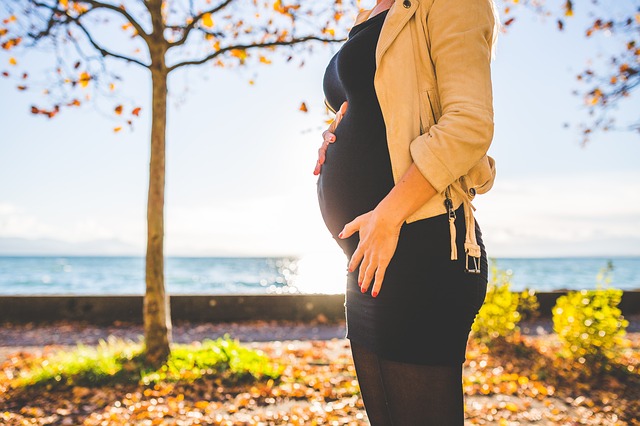Having siblings with a significant age gap can bring both benefits and challenges. The age gap between your children is a factor in how they will relate to each other and how your family will function. If you’ve got a 1-year-old and a 2-year-old, for example, it’s natural for them to see themselves as siblings, but not as peers.
While there is nothing like perfect, best or something like ideal age gap between two kids, we can talk about having some positives and negatives about each situation and can work towards your own age gap which suits you and your family more.
This blog post will explore the pros and cons of having siblings with a significant age gap. From the impact on a child’s development to potential difficulties with parenting, this post will give you an insight into the benefits and complexities of age gaps between siblings.
Table of Contents
Age gap of less than 2 year
1 to 2 years is a fairly common age gap between siblings. Most of the time, the parent and child have been together long enough to have established a relationship. Having a smaller age gap between siblings can be beneficial as the children will have more things in common, especially if they are of the same gender.
This can help them form an emotional connection with one another, which will prove invaluable in their development.
Pros of a Less than 2-Year gap
Here are few pros of having age gap of less then 2 year between siblings
● They get to share in each other’s development and growth together as they progress through life.
● This age gap provides an atmosphere of companionship, mutual understanding, and a sense of family bond.
● As they form a close connection at a young age, they grow up with tremendous respect and understanding toward one another.
Cons of a Less than 2-Year gap
Here are a few Cons of having an age gap of less than 2 years between siblings.
● Having too small of an age gap between children can create competition for resources, such as attention and physical items. If a child is much younger than their sibling, it can be difficult for the older child to “parent” their younger sibling.
● One of the primary cons of having a less than 2-year age gap between siblings is that they may grow up too dependent on each other and may need to learn how to be independent at an early age.
● A less than 2-year age gap may cause one or both siblings to become too reliant on each other and not learn how to stand independently at the early stages of life.
Read here about 15 Best Montessori toys for 6-month-old babies and toddlers
The Age gap of 2 to 4 year between siblings
As opposed to the age gap of less than 2 years, having an age gap of 2 to 4 years can be helpful for parents as it reduces the likelihood of jealousy or competition stemming from comparing life stages and experiences.
There are many advantages to having a close age gap between siblings. For one thing, they can be real partners in crime. They can share toys and clothes, and they’ll always have someone close by to play with and share secrets with.

Pros of a 2 to 4-year age gap
● Parents can use the same parenting resources for both children.
● The older sibling can often teach the younger sibling new skills and As their relationship develops over time, they will likely have stronger bonds.
● In this time frame, the younger child has the opportunity to learn from the elder sibling, while the elder sibling can provide guidance and care.
● When the age gap between siblings is in the 2 to 4-year range, the children are close enough in age to form a close bond, but the younger child is typically not old enough to feel the need to compete with the elder sibling.
● The gap allows both kids to do things that are right for their ages and interests. -This can mean more age-appropriate playdates with peers and more suitable entertainment opportunities.
● It allows each child to learn from and play with the other while still having their own space and independence.
● It also gives parents a more straightforward approach to parenting because they do not have to make many adjustments due to age differences.
Cons of having a 3 – 4 year age gap
●The younger sibling may feel like an outsider when the older sibling has their own activities and friend circle.
● Older siblings may feel they have to look out for the younger one constantly, and sibling rivalry may increase as the age difference between them is smaller.
● This age difference between siblings can be difficult for parents to maintain, as the older sibling may feel burdened or annoyed at having to look out for the younger one all the time.
● The 2 to 4-year age gap may make it difficult for the siblings to play together, as their interests and personalities are likely to differ quite a bit.
Age gap of 4.5 to 6 year
A more significant age gap of 4.5 to 6 years could be beneficial because it provides older siblings with a sense of responsibility and maturity when it comes to being role models for their younger siblings.
Pros of a 4.5 to 6-Year Age Gap
● Having a 5 to 6-year age gap between siblings can be beneficial as it allows the younger child to look up to and learn from the older sibling. -This can give the younger child confidence and guidance as they grow up.
● The older child can help the younger one with growing-up responsibilities, such as homework and sports.
●The more significant the age gap, the more likely the two children will be able to develop a strong bond as the older sibling has the maturity to understand the needs of the younger one better.
● It is essential to note that regardless of the age gap, the bond and closeness between siblings can still be created if parents take the time to nurture it.
40 best and unique postpartum gifts for new moms in 2023
Cons of a 5 to 6-Year Age gap
Having such a significant age gap can also create difficulty for the parents, especially if the older child is already in school when the younger one arrives.
● This could require extra support from outside sources or family members to ensure both children get adequate attention and resources.
● The best age gap between siblings is highly subjective, and the choice of the gap should depend on the individual family.
● Extra support is needed for both children, given the more significant age gap.
Age gap of more than 6 years
Finally, age gaps greater than six years can allow older siblings more freedom and independence before growing up and become an essential influence in their little sister/brother’s life.
Pros of a 6-Year or More gap
● The older child tends to be more responsible and can help provide care for their younger sibling in times of need.
● The older sibling may also be able to provide guidance and mentorship as the younger child develops.
●Each child is at a different stage of development and both are able to assist the other when needed.
The best age gap between siblings is going to vary from family to family based on their unique needs and preferences.
Cons of a 6-Year or More Age Gap
● Sometimes the older sibling may experience frustration when the younger one keeps up with them in terms of maturity and development.
● Larger age gap can mean it is hard to form a close relationship or bond.
● Can be difficult for parents to simultaneously manage the needs of two very different-aged kids.
● The children may have little in common, creating a disconnect which can, in turn, lead to some tension among siblings and a lack of understanding.
●Many people believe that having a gap of no more than two years between siblings is ideal. -This creates an immediate sense of companionship and allows the younger child to receive guidance from the older sibling.
Conclusion
At the end, here are few points to consider
- Having siblings with a significant age gap can be beneficial and challenging—but not impossible. When deciding whether or not to have another child with a significant age gap, it’s essential to think carefully about the pros and cons and practical aspects of parenting
- Age gaps should be determined based on family circumstances and preferences.
- However, age gaps can vary significantly depending on a family’s needs, with some having an even smaller gap or more extensive than six years between siblings.
- The best age gap between siblings should also depend on individual family circumstances and personal needs.
- Families have different schedules, resources, and priorities, so it is essential to make the best decision for them.
- Having an age gap between siblings can benefit all family members if the right decision is made.





